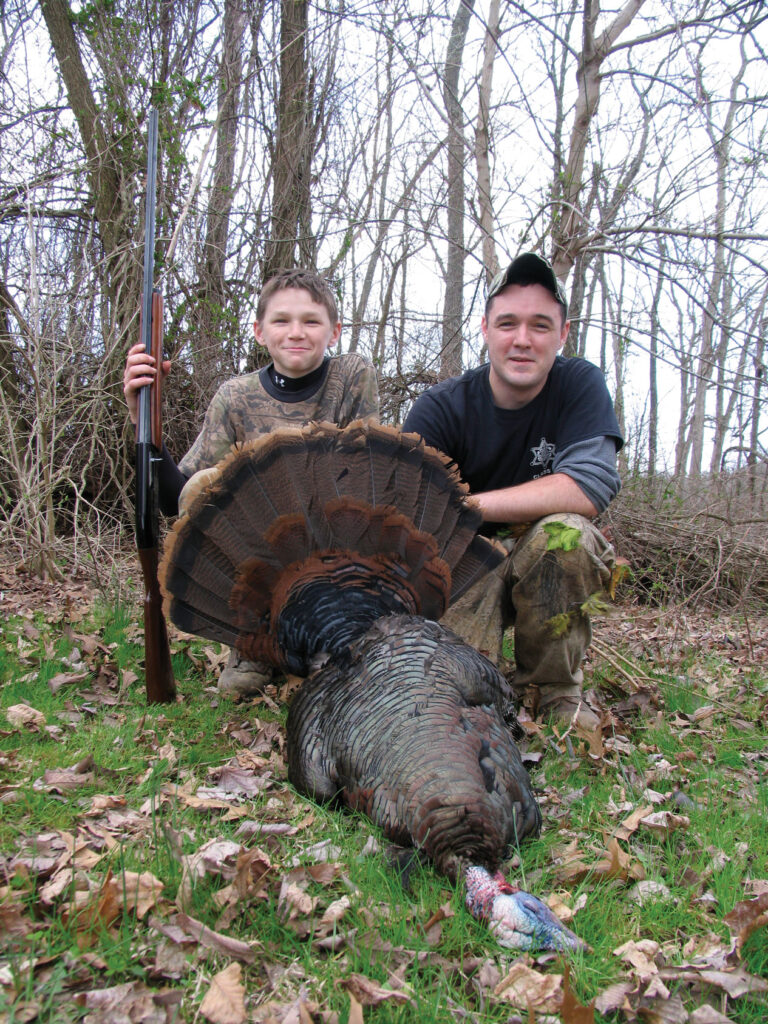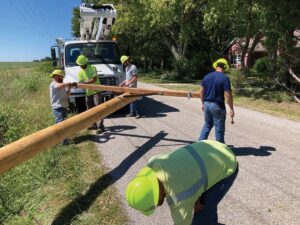 He was just a little boy in a cowboy hat leaning on the wooden rails of a sale barn, watching farm animals being sold to the highest bidder. Little did he know he was watching a cooperative in action, a group of farmers, which for the good of individual businesses, had come together to do business as one.
He was just a little boy in a cowboy hat leaning on the wooden rails of a sale barn, watching farm animals being sold to the highest bidder. Little did he know he was watching a cooperative in action, a group of farmers, which for the good of individual businesses, had come together to do business as one.
That same little boy has grown up doing business with cooperatives of all types as he farms his land in central Illinois. But today he dons a hard hat on occasion, and leads a cooperative association serving one of the largest groups of cooperatives in the state of Illinois.
That man is Duane Noland, CEO of the Association of Illinois Electric Cooperatives, the organization that serves your co-op and produces this magazine.
His understanding of the cooperative structure is at the root of what we believe in and what you can count on.
“The key ingredient of electric cooperatives, as well as most cooperatives in the United States, is that they are member-focused organizations,” Noland says. They have boards elected by those members and are accountable to them.
“In a day when many folks feel disconnected from the corporate structure, our business model is very different,” he adds. Another key component is that cooperatives operate as non-profit with any remaining operating funds or margins allocated as credits for use in developing the cooperative. The funds are returned later on a retirement schedule.
While long-standing principles guide most international cooperatives, as the economy of the day experiences a roller coaster ride, the cooperative structure is a steadfast model in which to operate.
“By nature, cooperatives are based in the communities they serve. The management and staff live on the same streets as the members they serve. Being in touch, gives them focus as to what services are really needed and what products their members desire the most. That closeness allows cooperatives to have longevity, a sustainability, I believe, that far exceeds other businesses,” Noland says.
The AIEC is in place to offer cooperative services. Likewise, it belongs to other cooperatives which help support its cause such as the National Rural Electric Cooperative Association and the Mid-America Cooperative Council (MACC). MACC Director Rod Kelsay, who is in touch with all types of co-ops, says you will see a cooperative form when there is a fundamental need, “when there are no services” in an area that supply that need.
“It’s the idea that we can take control of our own lives … link arms,” Kelsay says.
In celebrating the International Year of the Cooperative, we want to show our support
for the cooperative model. Throughout the year, we intend to feature a different statewide cooperative, which many of you will recognize or might also be a member. Join with us as we celebrate.
Serving rural electric, telephone and water cooperatives in Illinois
- Government relations
- Legislative research and information
- Legal services
- Engineering services
- Safety programs
- Training
- Regulatory compliance
- Member communication and public relations
- Graphic, editing, printing and mailing services
- Youth education
- Marketing assistance
- Annual meeting services
- News releases
- Video production
- Web design
- Surveys
- Group purchasing
- Energy efficiency programs







